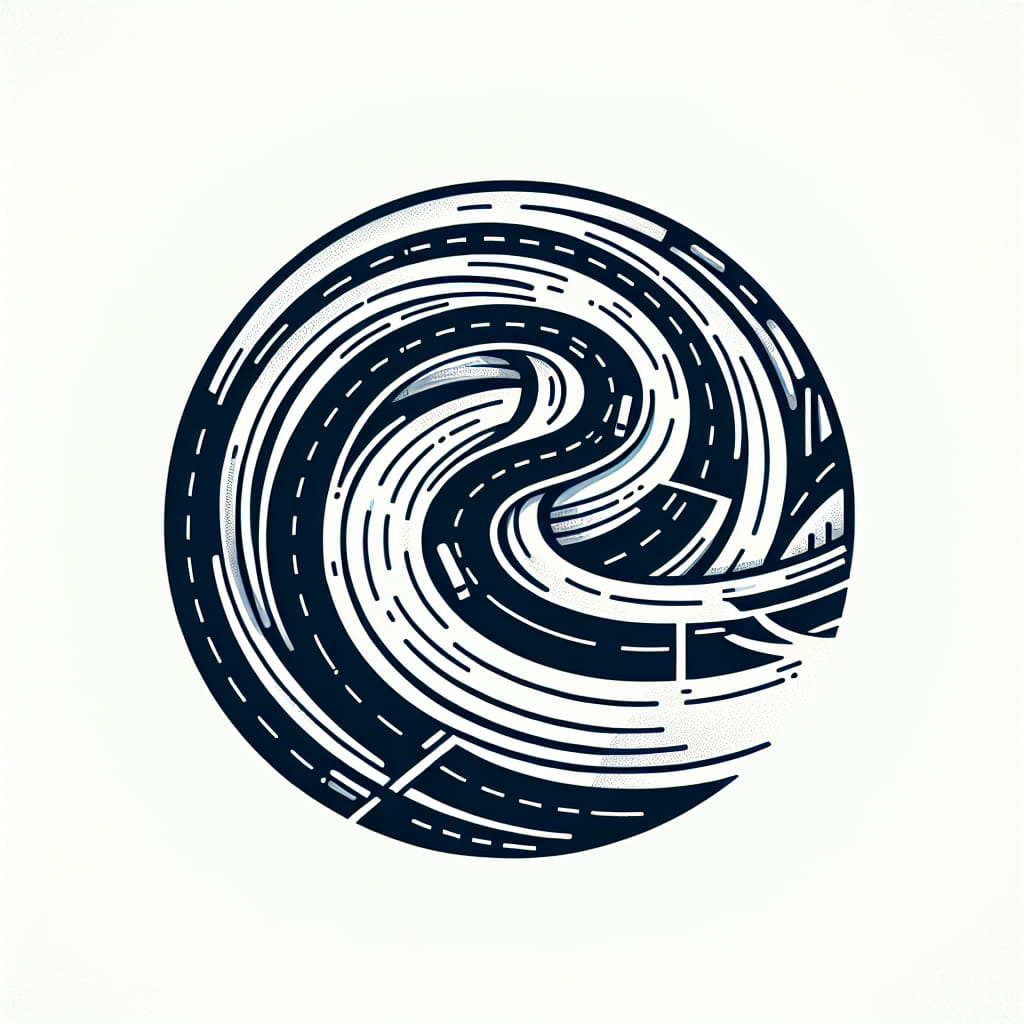· word of the day · 4 min read
Rond-point: Unveiling the Cultural Significance of French Roundabouts in Language Learning
Discover the cultural significance and practical usage of the French word Rond-point to enhance your language learning journey.

Discovering unusual words in a language can be like finding hidden treasures. They often carry rich histories, cultural nuances, and unique usages that can deepen your grasp of the language. Today, let’s delve into a fascinating French word related to transportation and directions that will not only expand your vocabulary but also give you a glimpse into the French way of life.
The Word: “Rond-point”
Pronunciation
“Rond-point” is pronounced as /ʁɔ̃ pwɛ̃/. If you’re familiar with the International Phonetic Alphabet (IPA), this might help you get the exact sound. If not, try saying “ron” like the beginning of “wrong” but with a nasal ‘o’, and “point” like “pwah” with a nasal ‘n’ at the end.
Meaning
“Rond-point” translates to “roundabout” in English. It refers to the circular intersection where drivers travel around a central island to navigate to different roads. Unlike the straightforward intersections, roundabouts are designed to improve traffic flow and reduce accidents.
Cultural Significance
In France, the “rond-point” is more than just a traffic feature; it’s a symbol of French urban planning and efficiency. France has embraced the roundabout more than any other country, boasting over 30,000 of them! They are seen as a safer, more efficient way to manage traffic compared to traditional intersections. The French love for the “rond-point” is so strong that it has become an integral part of the driving experience in the country.
Usage in Sentences
To help you understand how to use “rond-point” in everyday conversation, here are some examples:
Il y a un rond-point à la fin de cette rue. (There is a roundabout at the end of this street.)
Au rond-point, prenez la deuxième sortie. (At the roundabout, take the second exit.)
Les ronds-points rendent la circulation plus fluide. (Roundabouts make the traffic flow more smoothly.)
Idiomatic Expressions and Sayings
While “rond-point” itself doesn’t have many idiomatic expressions, it often appears in discussions about driving and navigation. Here are a couple of expressions where you might encounter it:
Tourner en rond – This phrase means “to go around in circles” and is used metaphorically to describe someone who is not making progress.
- “Il tourne en rond depuis des heures sans trouver la sortie.” (He has been going around in circles for hours without finding the exit.)
Prendre le rond-point à l’envers – This is a humorous way to describe someone who is doing something completely wrong or backward.
- “Il a pris le rond-point à l’envers, c’était un vrai désastre.” (He took the roundabout the wrong way; it was a real disaster.)
Role in Literature and Folklore
While “rond-point” might not feature prominently in classical French literature or folklore, it has found its place in modern narratives and media. Many contemporary French novels, films, and even songs mention “rond-point” to depict everyday life and the quintessential French driving experience.
For instance, in modern French cinema, scenes involving roundabouts often add a touch of realism and can be used to build tension or humor. Imagine a character frantically driving around a “rond-point,” unable to choose the right exit – it’s a situation many can relate to and laugh about.
The Enrichment of Language Learning
Learning words like “rond-point” enriches your language skills by exposing you to terms that are deeply embedded in the culture. It’s not just about knowing the translation; it’s about understanding how and why these words are used. This deeper comprehension can make your conversations more natural and help you connect better with native speakers.
By exploring unique words, you also get a glimpse into the daily life and mindset of the people who speak the language. You learn about their priorities, their humor, and their way of thinking. This cultural insight is invaluable and makes the language learning journey much more rewarding.
If you’re eager to continue expanding your French vocabulary and immerse yourself in the language, consider using tools like Glosa. You can download it here to enhance your learning experience.
Happy learning, and may your journey through the French language be as smooth as navigating a perfectly designed “rond-point”!




